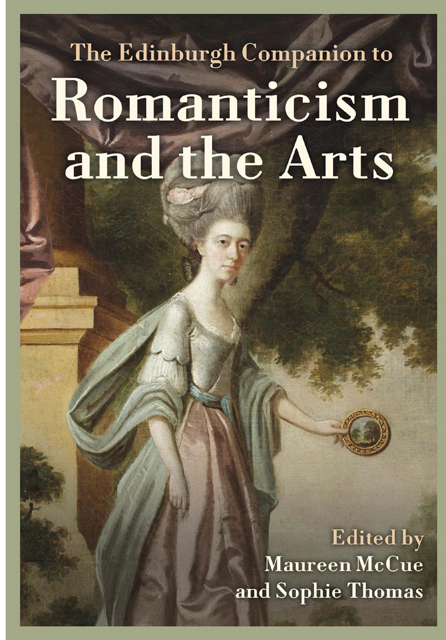26 - Cultural Manifestations of Romanticism on the Contemporary Screen
Published online by Cambridge University Press: 25 April 2023
Summary
While the last few decades of cinema have seen competing discourses to Romantic ideologies of identity, creativity and subjectivity, Romanticism has never left the contemporary screen. Romanticism is often adapted on the contemporary screen through an underlying assumption about Romantic definitions of individuality, the creative imagination and dominant tropes of the visual sublime in art as they are aligned with both. In my recent study of literary biographical films, I explore how contemporary literary biopics often define the figure of the author through Romantic ideologies of individuality, even if they may explore diverse historical settings (Shachar 2019, 15). I concluded this study by indicating how we can move the analysis of Romanticism on the contemporary screen beyond the study of biographical films about authors’ lives, as Romantic definitions of individuality and creativity pervade a diverse array of films, and, as I suggest, ones that are primarily centred on narratives of female subjectivity in our own modern era (180–7). It is this direction I wish to explore in this chapter, by examining cultural developments in the representation of Romantic ideologies on screen, specifically in the last two decades of cinema. This cinematic exploration of Romantic ideologies is threefold: it comes as direct representations of biographical films about Romantic authors; adaptations of later nineteenth-century novels; and new narratives, set in the contemporary era. In all three manifestations, Romantic ideologies of subjectivity, creativity and gender inform the representation of feminine subjectivity, and in doing so, tap into a significant area of cultural analysis of how contemporary cinema reworks these tropes.
The recent exploration of Romantic tropes in cinematic terms can be better understood when we compare the ways in which Romantic authors and their texts were adapted for the screen throughout the 1980s and 90s. This earlier production context was deeply entwined with the contemporary heritage industry’s agenda, which inevitably shaped how the lives of Romantic poets were presented to audiences (see Hewison 1987; Higson 2003; Monk 1995; Pidduck 2004; Sadoff 2010). Feeding into the commodification of the English country house as a tourist destination and national fetish, the plethora of Jane Austen adaptations in the 1990s, for instance, reflects audience expectations while delineating key terms in the presentation of Romantic-period subjects.
- Type
- Chapter
- Information
- The Edinburgh Companion to Romanticism and the Arts , pp. 486 - 501Publisher: Edinburgh University PressPrint publication year: 2022



